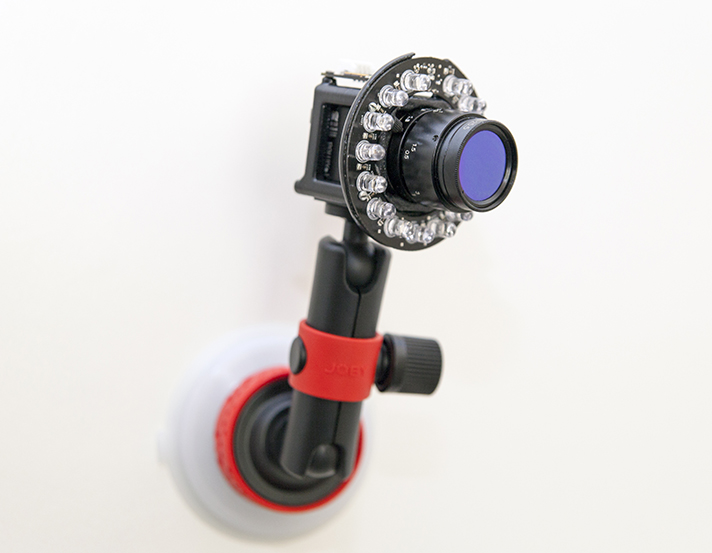
The video recorder was developed to detect fatigue symptoms that may appear while driving a car. The principle of operation is based on filming the driver’s face illuminated with light in the near-infrared band and detecting changes in the location of the characteristic points on the face, which may indicate fatigue.
The detector can be attached using a special holder to the windshield of the vehicle.
Construction
The detector construction has been made in a compact form in which the mechanical element is also a load-bearing element for all components. The mechanical element has been prepared for the use of 3D printing technology. The basic components of the detector are as follows:
- video camera
- illuminator
- control elements
Software
The device software enables the detection of characteristic points of the face, associated with the arrangement of eyes, nose and mouth, and the calculation of the following indicators of driver’s fatigue:
- opening/closing eyes
- eye closure duration (ECD)
- frequency of eye closure (FEC)
- percentage of closed eyes (PERCLOS)
- the distance between the centers of the eyes and the corners of the mouth
- eye surface
- the frequency of yawning
Application
- assessment of fatigue and drowsiness symptoms that may appear while driving a car
- assessment of the oculographic parameters and driver's mimic reactions to various road situations, including sudden, unexpected and threatening driving safety
- assessment of the driver's behavior during long-term and monotonous driving, e.g. on the highway, based on the characteristic points of the face
The detector was developed under Project No. PBS3/B9/29/2015 entitled “Detector of early fatique symptoms as an element of improving driving safety”, financed by the National Center for Research and Development.
The project was implemented by a consortium consisting of:
- Nofer Institute of Occupational Medicine (Leader)
- Military Institute of Aviation Medicine
- Military University of Technology
- Cardinal Stefan Wyszyński University in Warsaw
- IMAGE Group Ltd.
References: Dziuda et al. Construction of a detector of fatigue symptoms in car drivers. Pol J Aviat Med Bioeng Psychol 2018; 24(3):23-29.
| Contact: |
M.Sc. Marcin Piotrowski PhD Paulina Baran |


